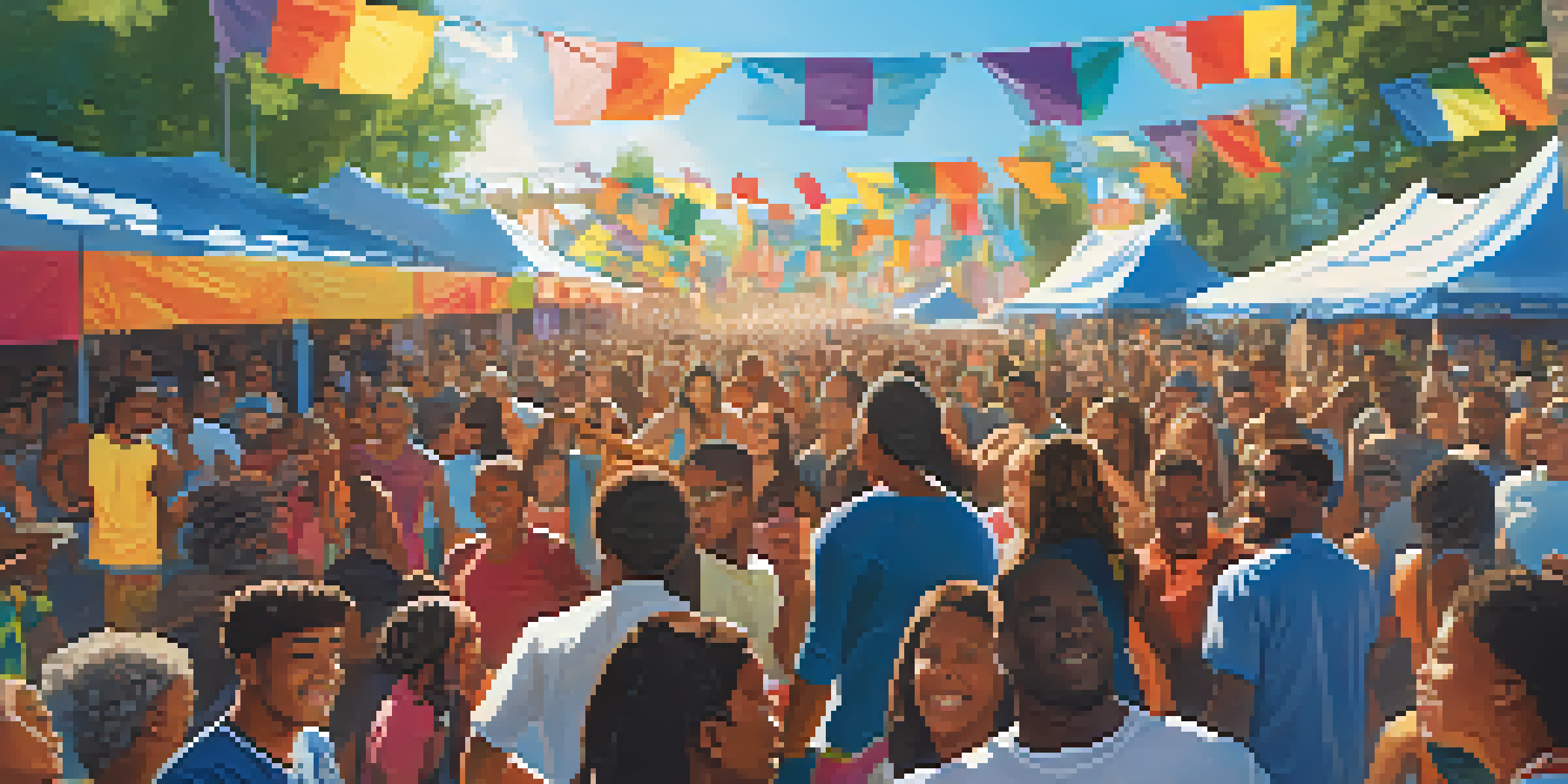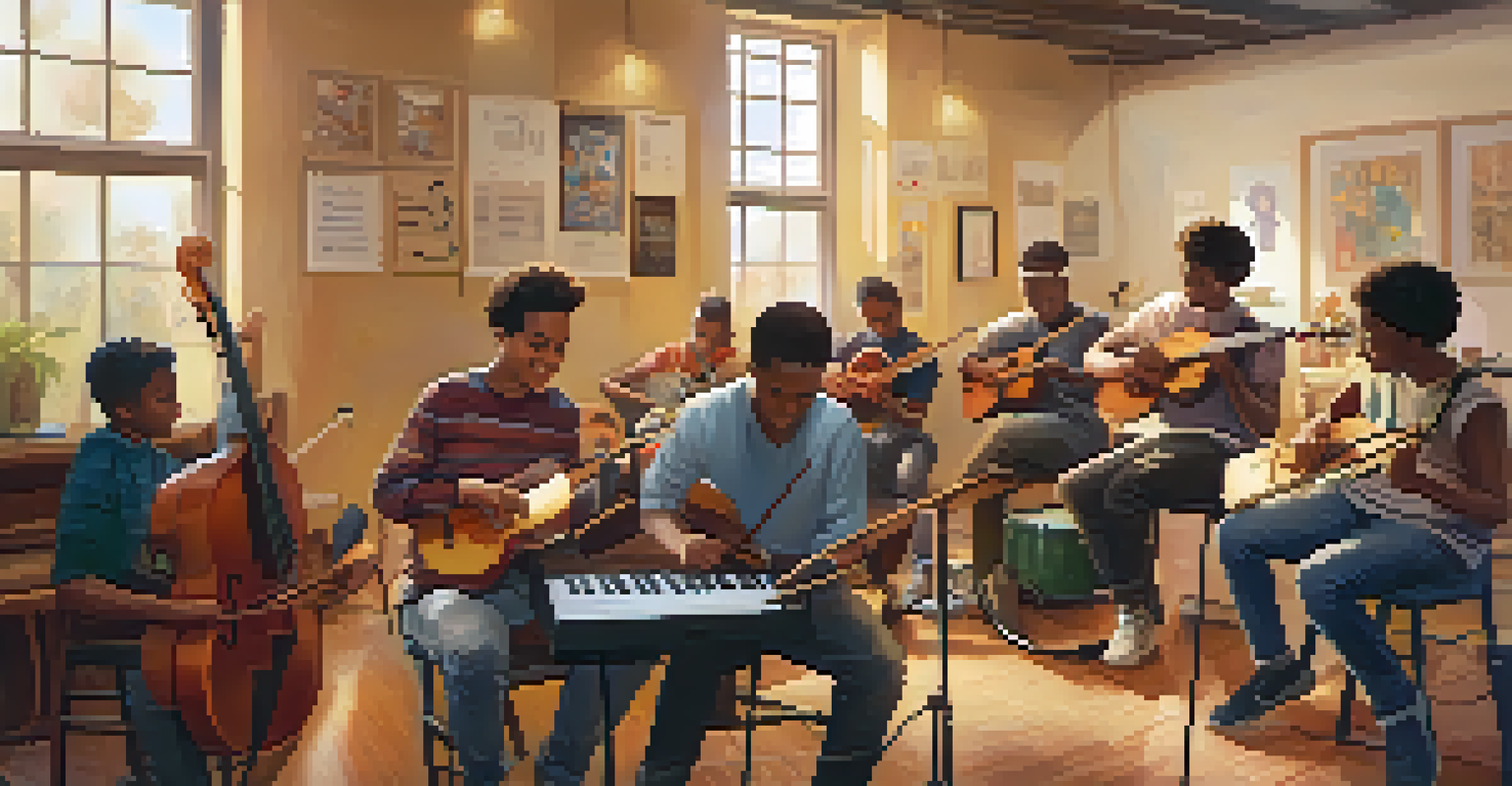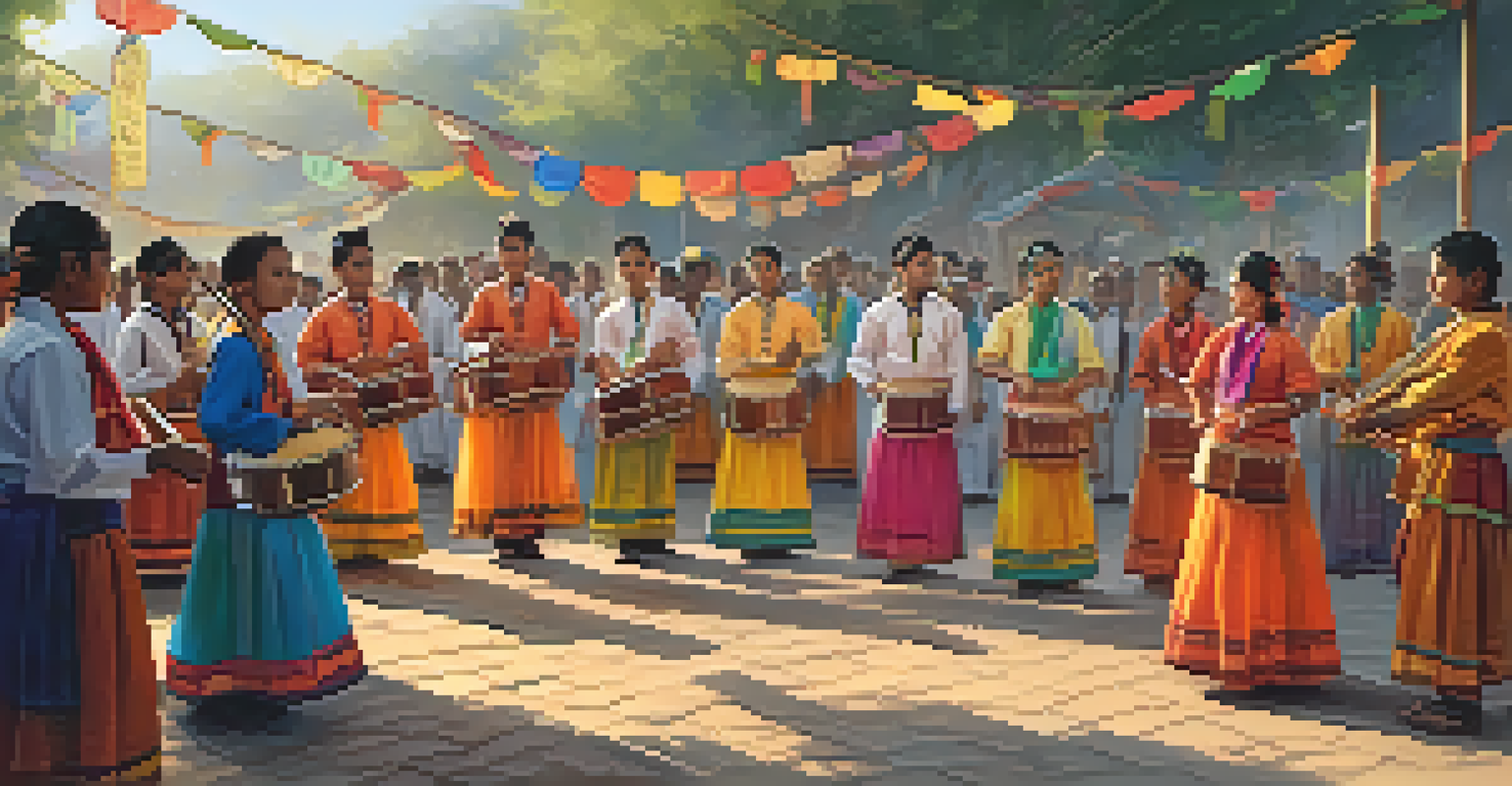The Influence of Music on Youth Community Engagement

Music as a Catalyst for Youth Involvement
Music has a unique ability to bring people together, especially young individuals. It serves as a common ground where diverse backgrounds can unite over shared interests, creating a sense of belonging. When youth participate in musical activities, whether it's playing in a band or attending concerts, they naturally engage more with their community.
Music can change the world because it can change people.
For example, local music festivals often attract young people who are eager to enjoy live performances. These events not only showcase talent but also encourage collaboration, networking, and community pride. Through these shared experiences, young individuals can develop friendships and a sense of responsibility towards their community.
Moreover, music-driven initiatives, like youth choirs or community orchestras, can foster leadership skills among participants. As they take on roles in organizing events or leading groups, they learn the importance of teamwork and commitment, further enhancing their connection to the community.
The Role of Music in Social Movements
Throughout history, music has played a vital role in social movements, inspiring youth to take action. Songs have the power to convey messages of hope, resilience, and justice, motivating young people to stand up for their beliefs. This influence can lead to increased engagement in community initiatives and social causes.

For instance, protest songs from the 1960s still resonate with today's youth, encouraging them to participate in movements for social change. Whether it's climate activism or racial equality, music serves as a rallying cry, unifying young voices and amplifying their demands for change.
Music Unites Youth in Community
Through musical activities, young individuals bond over shared interests, fostering a sense of belonging and responsibility in their communities.
By participating in these movements, young individuals not only express their beliefs but also gain a deeper understanding of their community's issues. This engagement helps them develop critical thinking skills and fosters a sense of ownership over their environment.
Music Programs and Youth Development
Community music programs offer invaluable opportunities for youth development. These programs often provide a safe space for young people to explore their creativity and express themselves through music. Participants can learn new instruments, collaborate with peers, and even perform for their community, all of which contribute to personal growth.
Without music, life would be a mistake.
For example, a community center that hosts music workshops can help youth build confidence and improve their social skills. As they perform in front of an audience, they learn to overcome fear and embrace vulnerability, which are essential life skills.
Additionally, these programs often emphasize teamwork, discipline, and perseverance. By working together on musical projects, young individuals cultivate a sense of camaraderie and responsibility, further deepening their connection to their community.
Building Cultural Identity Through Music
Music is a powerful tool for expressing and preserving cultural identity. For many young people, engaging with music from their heritage can help them connect with their roots and community. This connection fosters pride and encourages participation in local events celebrating their culture.
For instance, youth involved in traditional music groups often participate in cultural festivals, showcasing their talents and educating others about their heritage. These interactions not only reinforce their sense of belonging but also promote cultural exchange within the broader community.
Music Fuels Social Change
Historically, music has inspired youth to engage in social movements, using its powerful messages to advocate for justice and community issues.
Furthermore, as young individuals share their musical traditions with peers from different backgrounds, they help bridge cultural gaps. This exchange can lead to greater understanding and appreciation of diversity, enriching the community as a whole.
Music and Mental Health in Youth Engagement
The mental health benefits of music are well-documented, and they play a significant role in youth community engagement. Music can reduce stress, improve mood, and enhance overall well-being, making it an essential element for young people as they navigate the challenges of adolescence. When youth feel supported emotionally, they are more likely to engage actively in their communities.
Participating in music activities, whether through playing an instrument or singing in a group, can serve as a healthy outlet for emotions. This engagement not only promotes personal well-being but also encourages young individuals to connect with others who share similar experiences.
Moreover, community organizations that prioritize music therapy or provide musical outlets often see increased participation from youth. These programs not only address mental health issues but also create a supportive environment where young individuals feel valued and connected.
Digital Music Platforms and Youth Engagement
In today's digital age, music platforms have revolutionized how youth connect with each other and their communities. Streaming services, social media, and music-sharing apps allow young people to discover new genres and collaborate with others globally. This accessibility fosters a sense of belonging and encourages community engagement through shared musical interests.
For example, platforms like SoundCloud or TikTok enable young musicians to showcase their talents and gain recognition. This exposure can motivate them to organize local events, collaborate with peers, or even start their own music initiatives within their community.
Music Programs Enhance Development
Community music programs provide safe spaces for youth to express themselves, build confidence, and develop essential life skills through collaboration.
Additionally, online music communities often lead to real-life connections. Young individuals who meet through digital platforms may decide to form bands, organize concerts, or engage in community service projects, further strengthening their ties to their local environment.
The Future of Music and Youth Community Engagement
As technology continues to evolve, the future of music and youth community engagement looks promising. Innovations such as virtual reality concerts and interactive music experiences may offer new ways for young individuals to connect with their peers and communities. These developments can enhance engagement and foster a sense of shared experience, regardless of physical location.
Moreover, as communities recognize the value of music in fostering youth engagement, we can expect to see an increase in funding and support for music programs. This investment will create more opportunities for young people to participate in musical activities and develop essential life skills.

Ultimately, the influence of music on youth community engagement will continue to grow, shaping the future of both music and community involvement. By harnessing the power of music, we can empower young individuals to create positive change and build stronger communities.